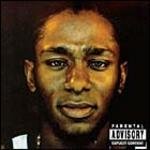The beauty of music as a historical source; it serves as raw primary material that reveals to listeners the ethos of a particular group at a particular moment. We all know of the blissful yet frustrated soundtrack that accompanies the Vietnam and Civil Rights era, the pained jazz solos that sang for the immediate post-war urban underclass, the glitzy synth-rock and excess guitar metal of, well, the excess of the 1980s.
What of our own time? Some of the most important music of late comes out of hip-hop, where MC's push the issues to the forefront, forcing us to confront reality and deconstruct the myth that is the American dream. Nobody has recently done it better than Mos Def in his 1999 effort, Black on Both Sides, an album imploring us to beware that the optimism of the left-leaning white middle class at the end of the Clinton era was (and remains) a mere façade covering endemic, ominous problems.
The standout track, "Mathematics," is ingenious social commentary in verse, and notes how while mainstream culture may be satisfied with the direction of American society, in fact, throngs of people continue to struggle helplessly, hopelessly, and within a matrix that leaves their own environment in utter disarray. Should we be surprised when city crime becomes a problem? Mos scoffs at the question: "If you push to hard even numbers got limits/ Why'd the straw break the camels back/ Here's the secret/ There's a million other straws underneath it." Your thoughts, Mr. Def, on a society that cloaks itself in adages touting equality, opportunity, and freedom: "Several stipulations attached to each sentence/ Budget cutbacks and increased police presence/ And even if you get out of prison still living/ Join the other five million under state supervision."
Musically, the album is a homage to both old school hip-hop, with its worked-in throwback to Tribe Called Quest's Midnight Marauders on the insightful "Mr. Nigga," and to the consistent African-American presence on the vanguard of American music. The infectious sounds of R&B organ riffs feature on "Fear Not of Man," and soulful horns give "Hip Hop" a rich texture. "Do It Now," the fiery duet with Busta Rhymes, is a sharp invocation for Black pride made over a staccato hook that walks the line between rock and funk. In a tribute to Black music legends, "Rock n' Roll" reminds us just how derivative popular music is of these trailblazing pioneers. While Mos' central theme is critical social issues, he is also mindful to show the beauty of urban culture; "Habitat" is a celebration of that life, while "Ms. Fat Booty" captures the essence of sweaty and passionate city romances.
Six years after its release, we find ourselves more disenchanted than ever with our leaders; most recently, the aftermath of Hurricane Katrina swept all the dust from under the rug, and the nation was treated to a shocking wakeup call of just how tired and poor our huddled masses have been. We have been forced to understand that the rising standard of living wholly ignores a forgotten, yet sizeable and significant, section of society. We can only hope that this leads to action and improvement. Because of this urgency, and Mos Def's powerful social message – along with sheer musical brilliance, and an ability to celebrate life while offering words of caution – perhaps Black On Both Sides needs to be required listening for high school sociology and history students for years to come.
1. Fear Not of Man
2. Hip Hop
3. Love
4. Ms. Fat Booty
5. Speed Law
6. Do It Now
7. Got
8. Umi Says
9. New World Water
10. Rock N' Roll
11. Know That
12. Climb
13. Brooklyn
14. Habitat
15. Mr. Nigga
16. Mathematics
17. May-December
More about: Mos Def




